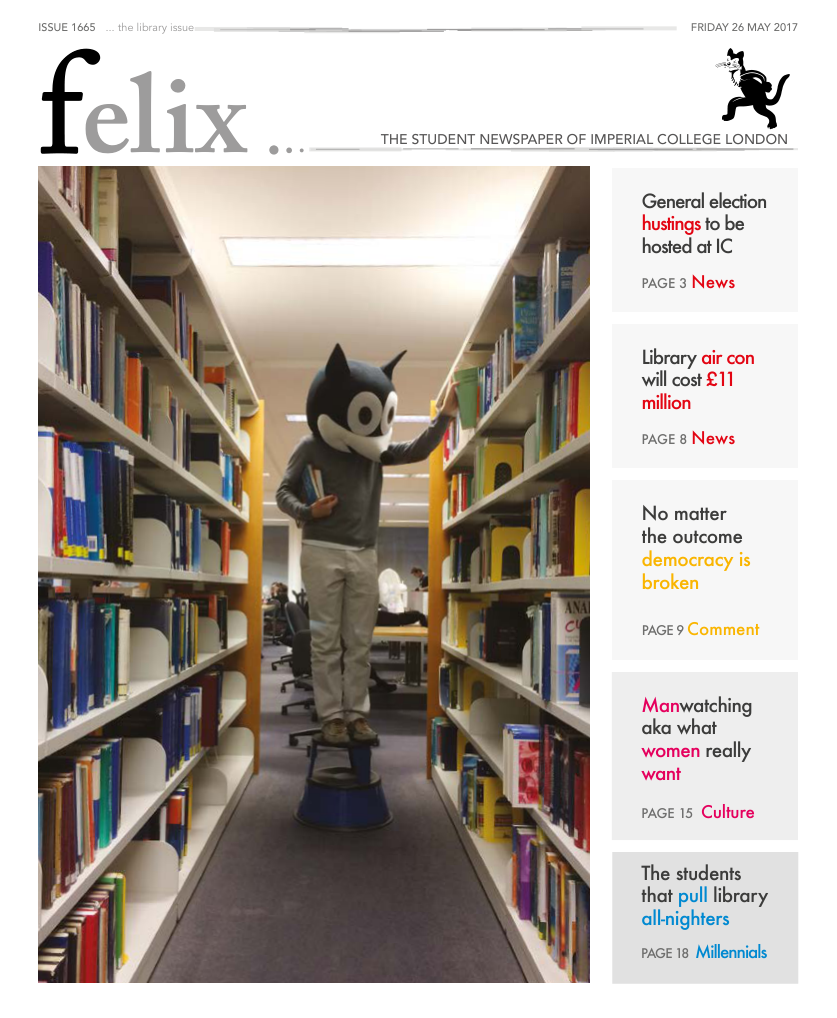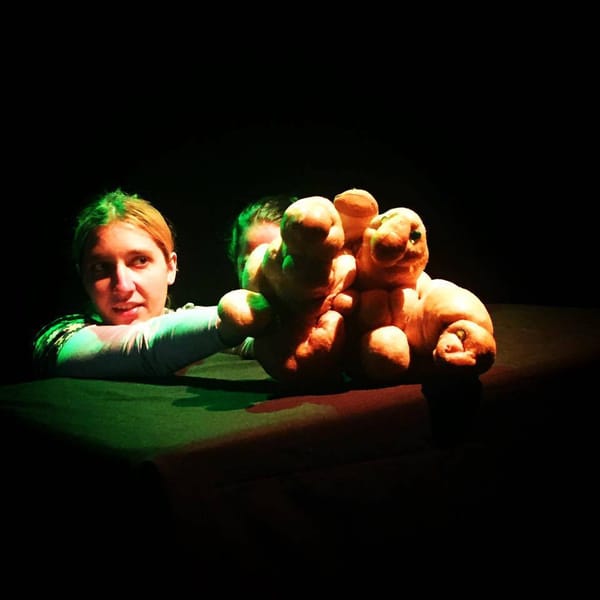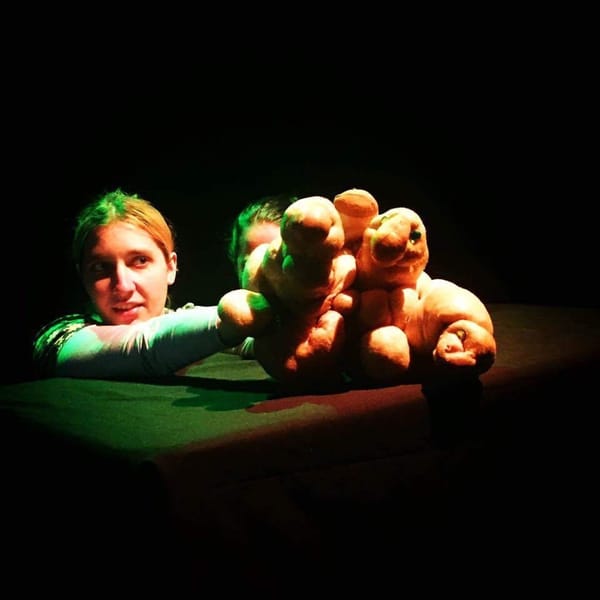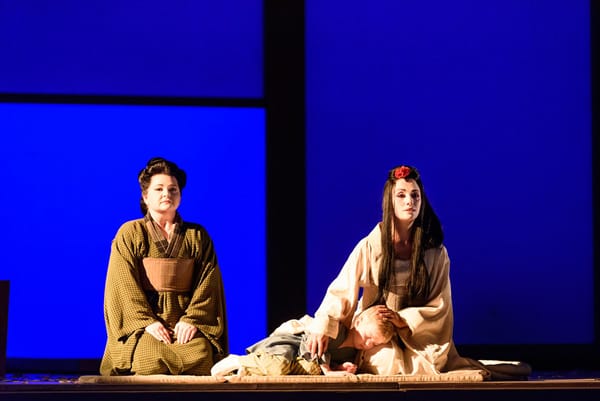Manwatching | Want Women Really Want
Ezra Kitson learns about female heterosexual desire from a monologue "written by an anonymous woman, performed by an unprepared man"
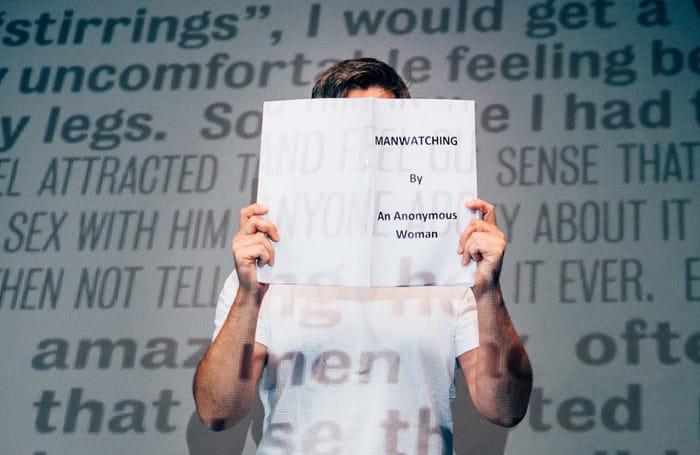
Manwatching offers an insight to the heterosexual world of sex from a female point of view. The show consists of a roughly sixty minute monologue, which explores several aspects of sex including masturbation, sexual fantasies and consent. The prose is raw, explicit and dynamically written. In every performance the monologue is read aloud by a male comedian who has no previous exposure to the text. The result is an impromptu experience that is funny and at times a bit shambolic.
I went to see the piece on its second night at the Royal Court in Sloane Square. I sat amongst a diverse audience (both in age and gender) in the small upstairs auditorium. The room was painted black and on the stage floor there were two raised platforms housing a printer and a jug of water. After a few minutes a man walked out in an expensive shirt and shorts with a vaguely familiar bearded face. He announced that his name was Adam Buxton and he would be giving tonight’s performance. Perhaps the expectation was palpable; on other nights Nick Frost and Phil Jupitius would be performing. Buxton addressed this with characteristic ease, “so I know you are all a bit disappointed”, before proceeding into a light hearted biography. He is a comedian and actor, with an impressive portfolio of script writing and he now hosts a podcast. Meanwhile the printer whirred behind him, producing the 28 page monologue. The appearance of two yellow pages, Buxton explained, would mean the reading could begin.
The prose is raw, explicit and dynamically written
He started, and at once the audience relaxed into the rhythm of the piece. You could tell Buxton had practice in script reading, his pacing was good and his phrasing dynamic. Most importantly he adopted the jocular tone of the author. We could tell it was his first time seeing the script, and through eyebrow raising, dramatic pauses and what I presumed were adlibbed comments, the whole experience felt organic. There were some stumbling points, 28 pages is a lot to get through in one sitting. Occasionally these were funny, misread words creating additional dirty meanings in the text. Sometimes they were prohibitive, and we would have to wait as Buxton retraced his thoughts. This was to be expected; Buxton handled it all very smoothly. To help him, the monologue could have been made shorter, and perhaps some of the awkward phrasing smoothed to make it more first-read friendly.
It’s important I do not give too much away regarding the content of the monologue. Part of the fun in this piece is being shocked and surprised by the writer’s discursive train of thought. Seemingly benign anecdotes become sexualised and the narrative jumps between distant themes with only the most rudimentary segues. The fact that the narrator is as surprised by this as the audience creates a powerful shared experience. We are more prone to laughter when we feel slightly uncomfortable, and the nervous chuckles that accompanied the first minutes reading soon gave way to hearty roars from the crowd.
nervous chuckles that accompanied the first minutes reading soon gave way to hearty roars from the crowd.
Does it matter that the narrator is a man? In many ways it’s vital for the success of the piece. Manwatching is after all just that. Watching a man react and respond to the truth about feminine heterosexual desire. Personally I found some of the passages to be genuinely enlightening. I have no doubt that this was the case for Buxton and the male component of the crowd as well. Pieces like this are not only important because they break down the taboo culture of talking about sex, they also unify the gender divide in understanding it.
Who wrote Manwatching? We never find out. I think it’s important that we don’t. The themes covered in the text are universal and anonymity reflects this. This is further conveyed in the monologue’s conclusion where women in the audience are prompted to stand and claim provenance of the work. It’s in appropriate end to the 90 minute reading and the applause that follows is undoubtedly sincere.
Afterward Buxton is given flowers and then leaves. We follow behind, having all laughed and thought a good deal. Unanimously, I think we all feel a lot closer to Buxton now too.

